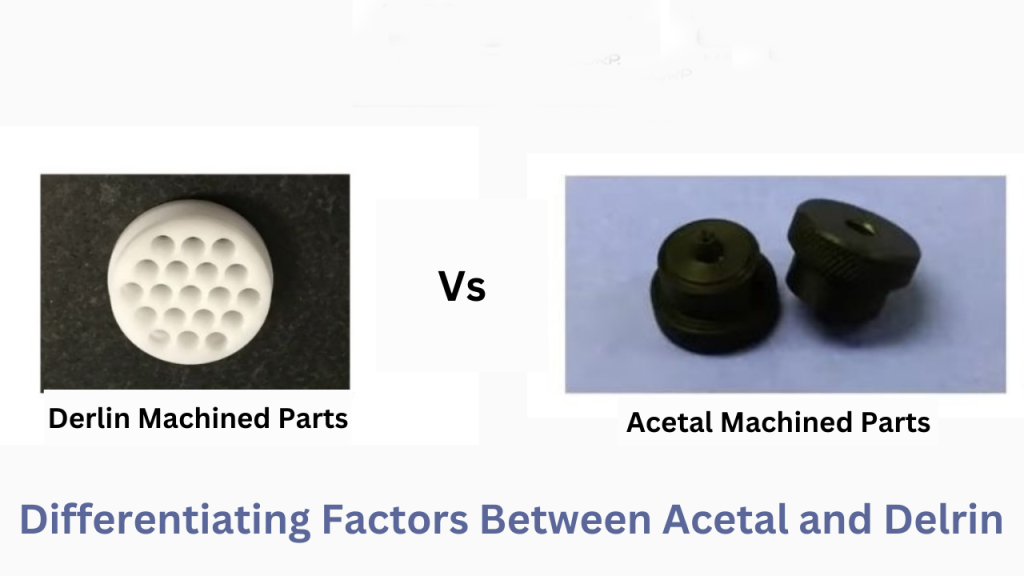Differentiating Factors Between Acetal and Delrin
While computer numeric controlled or CNC machining techniques have been in use from decades, they have evolved with time and advancements in technology. This has helped CNC machining gain gained immense popularity among fabricators and OEMs. This fabrication technique has been the most widely employed across industries, wherein high-speed and precise cutting tools can produce a wide variety of shapes from different materials, such as metals, plastics, and composites. Plastic is amongst the most popular material used for making parts and components with the help of CNC machining. There are a variety of thermoplastics used, some of which are developed and patented, because of their moldability, flexibility, and durability, and other such physical and chemical properties. Acetal and Delrin are two commonly used polymers for CNC machining. This post describes these two polymers in detail along with a comparative account.
A Quick Overview of Acetal
Popularly called polyacetal or polyoxymethylene, Acetal is a widely preferred semi-crystalline engineered thermoplastic. This polymer has many applications owing to its beneficial features, such as low friction and high strength. Basically, it has an opaque white appearance. However, it can be made available in various colors. The polymer is available as both a copolymer and a homopolymer, although the latter is superior in terms of dimensional stability.
A Quick Overview of Delrin
Delrin is an Acetal homopolymer patented by DuPont. The polymer is well-known for its unmatched strength, making it an ideal choice for several industrial applications. It is widely used to make different products ranging from gears and bearings to electrical insulation, phone cases, and so on. It is one of the most versatile materials that is widely used for fabrication through CNC machining. It can be machined to tighter tolerances and has a low friction surface. Delrin is highly preferred in applications that can tolerate minimal dimensional changes.
Acetal vs Delrin – Know the Real Differences
Here is a list of important pointers that differentiate Acetal and Delrin in detail.
- Hardness: This is one of the important aspects of differentiation. The harder materials will be more resistant to abrasion and impacts, and may have a lower coefficient of friction. This makes them convenient to slide along the conveyor system. There is a marginal difference between the hardness of these materials. Compared to Acetal, Delrin is a slightly higher in hardness. Also, it has a lower coefficient of friction than Acetal.
- Porosity: Delrin has a porous center, letting it contain small voids or bubbles while parts are being manufactured. Due to this, liquids and gases can seep into the material. This is not the case with its copolymer form of Acetal as it has no porosity. Therefore, they are used for making CNC machined parts in the food and medical industries.
- Chemical Resistance: As compared to Delrin, Acetal is chemically more resistant to solvents and fuels. This makes it the preferred option for parts and material handling applications that involve the use of strong base chemicals. Delrin is resistant to several chemicals, and unaffected by insects, fungi or other organisms.
- Flexural Yield and Tensile Strength: These two are the most important pointers to consider when comparing Acetal and Delrin. Delrin has a higher yield and tensile strength than Acetal. Delrin has a tensile strength of 9,500 psi, while Acetal has 11,000 psi. The flexural yield strength of Delrin is 13,000 psi, while Acetal has a yield strength of 12,000 psi.
- Application: Both Acetal and Delrin find applications across industries. Delrin is a popular choice for parts that demand a strong POM material. However, Acetal is suitable for parts that require a chemically resistant POM material.
When it comes to choose materials for CNC machining parts, there are a plethora of materials to choose from, like Acetal and Delrin to CNC plastic machining services. However, which one is the best for your project? Well, the answer depends on the specific project requirements. If you have a doubt or need help selecting the material for your project, it is always advisable to consult your CNC machinists. China CNC Machining stands tall among its other competitors. With vast years of market presence and skilled employees, the company offers CNC machining services and helps you in the right material selection, based on your objectives and goals.


